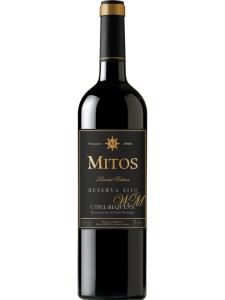Utiel-Requena, located west of Valencia city, is the largest wine region (in terms of area under vine) in the Valencia region on Spain's east coast.
Grape growing is Utiel-Requena's driving economic force, and archaeological finds show viticulture dates back to at least the 7th Century BC, from the time of the early Iberians. In 1BC, Ancient Romans settled there and introduced improved winemaking techniques. The region has enjoyed fame and demand since, particularly during the late 19th Century when outbreaks of phylloxera and powdery mildew devastated production in France – Utiel-Requena's wines helped to fill the void.
Utiel-Requena was established as a DO in 1957, deriving its name from the towns of Utiel and Requena, to the northwest and southeast of the designation respectively.
The land in the region is mostly flat, dry and harsh. Utiel-Requena's most notable feature is its uniform climate and topography throughout the whole designation. It sits on a plateau 43 miles (70km) inland from the coast and approximately 2300 ft (700m) above sea level. The region's location and geography give it a transitional climate – between Mediterranean and continental. The higher-altitude vineyards (some reaching 2950ft/900m) have traditionally shaped the wine styles produced, with early autumn frosts often forcing vineyard owners to harvest their grapes before they have reached optimum phenolic ripeness.
Bobal, a native red-wine variety, dominates plantings in Utiel-Requena, meaning the region specializes in reds and rosés (rosados). In the past, these under-ripe wines did not respond well to barrel maturation and most producers turned to rosé – which became the staple wine of the designation. However, in recent years, attention has been refocused on red wines, including the blending of Bobal with varieties such as Tempranillo and Cabernet Sauvignon. This innovative approach has worked wonders and the wines are characterized by delicate, black-fruit aromas when young and more-complex flavors after oak aging. Utiel-Requena now produces some excellent examples of aged wines, a far cry from its bulk-production status of the past.
A traditional wine style in Utiel-Requena (still made by a small number of producers) is the red doble pasta (the literal translation being 'double pulp'). It involves fermenting Bobal must with leftover skins and pulp after the juice has been removed for the rosé wines. This 'double maceration' results in high extract, color and tannins.
The south-eastern half of the region, aside from qualifying for the Utiel-Requena DO, is also authorized to produce the espumoso (sparkling) Cava, Spain's answer to Champagne. Typically it is made from Macabeo, Xarel-lo and Parellada, although Chardonnay and Pinot Noir, among other varieties, are now permitted in the Cava blend.



